In the whirlwind of commercial pet food, it's easy to forget that what we feed our dogs is inherently linked to their health and happiness. This is why more dog owners are turning to homemade meals with a mission of crafting canine cuisine that's not only delicious but brimming with health benefits. A homemade approach provides a range of advantages, such as healthier ingredients, greater control over portion sizes, and the ability to tailor meals to your dog's specific needs. Let's embark on a culinary adventure for the furry friends in our lives, exploring the power of fresh, homemade dog food recipes.
The Canine Kitchen: Importance of a Healthy Diet
Just like us, a well-rounded diet is the cornerstone of a dog's well-being. From improved digestion to better weight management and increased energy levels, the benefits are profound. A balanced homemade diet can also alleviate or prevent several health issues such as allergies, obesity, and even certain types of cancer. Here, we’ll dive into why it’s worth the extra effort to cook up some love for your canine companion.

Barking Good Benefits of Homemade Dog Food
Understanding the inherent benefits of homemade meals is the first step in justifying the time and effort it takes to cook raw food for your dog. Unlike processed pet foods, homemade meals ensure you know exactly what's going into your dog's bowl, offering transparency and control.
A Pawsitive Control over Ingredients
Tinned and dried dog food can be mysterious in content; homemade meals provide clarity and the ability to exclude or include ingredients based on your pup or dog's weight and health needs.
Portion Control and Precision
Customizing meals means portion sizes are never a guessing game. By designing meals around your dog's size, activity level, and overall health, you can ensure they're getting just the right amount of nutrients.
Savings for Sniff-Worthy Health
While the initial setup cost and cooking process may seem daunting, homemade meals can potentially save money in the long run, especially if your dog needs a special diet or has specific dietary needs.
What's Cookin', Poochin'? Foods to Include in Your Dog's Diet
A varied diet for your dog means they enjoy a balanced nutritional intake. Here are some staples that should find their way into your pet's nutritious nosh.
Lean Meats and Fish
Proteins are the building blocks of life, and dogs thrive on them. Aim for lean cuts to avoid excessive fat. Examples include:
- Chicken
- Lean ground turkey
- Lean ground beef
- Fish like salmon or whitefish.
Fruits and Vegetables
High in vitamins, fiber, and antioxidants, certain fruits and veggies are a wag-inducing addition to your dog's menu. Think:
- Blueberries
- Carrots
- Strawberries
- Green Beans
- Watermelon
- Spinach
- Kiwi
-
Bananas
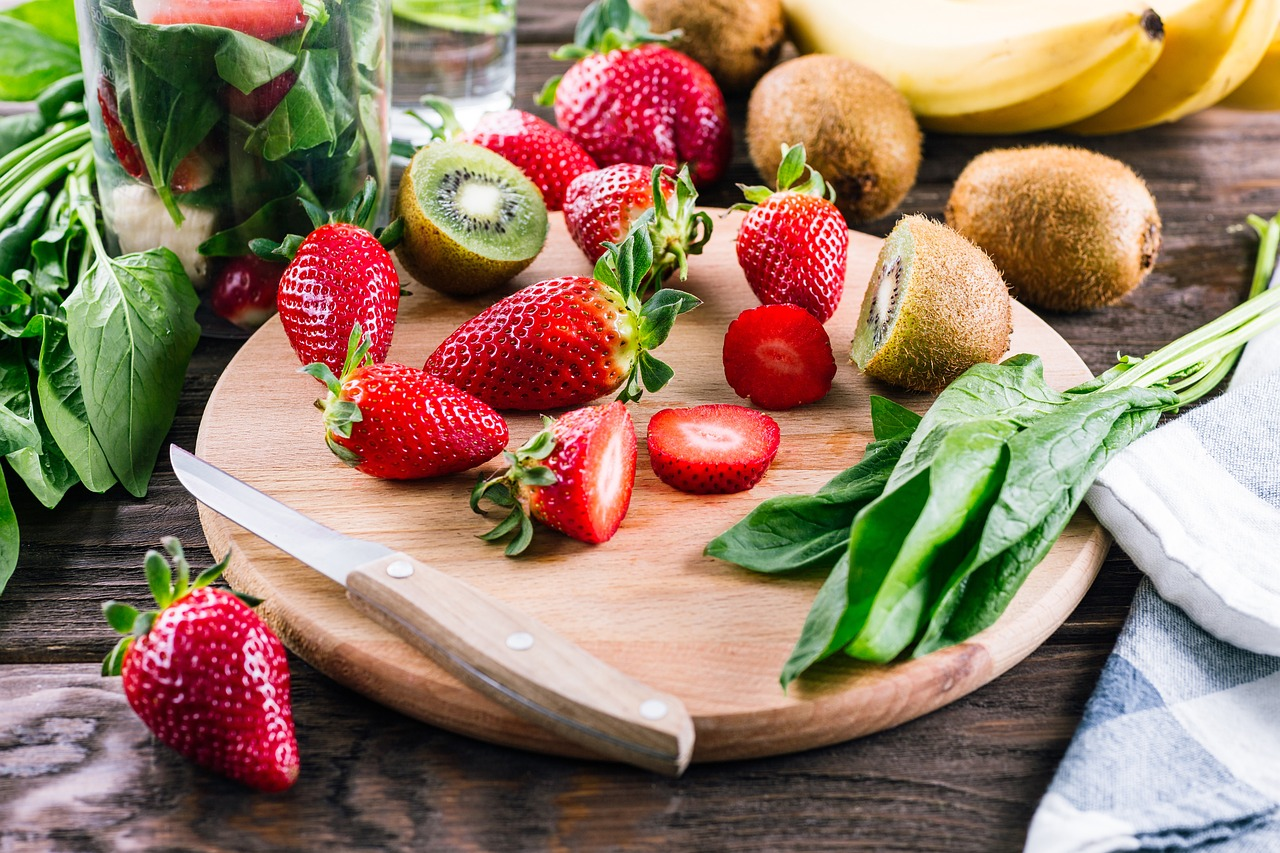
Whole Grains
Carbohydrates sourced from whole grains such as brown rice and quinoa provide energy and are easier on the digestive system than refined grains.
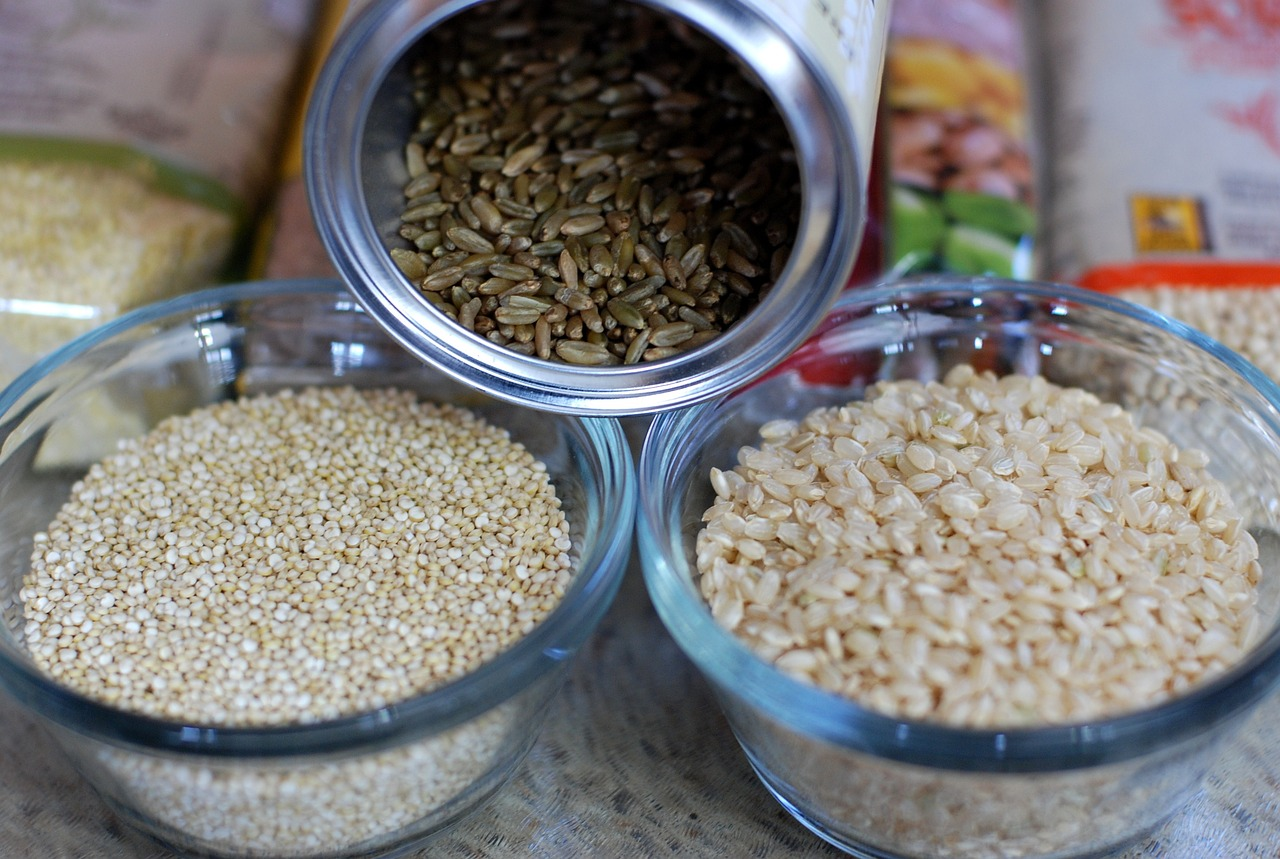
Dairy Products
In moderation, certain dairy products like plain Greek yogurt can provide probiotics that promote gut health and can be a pleasant diversion from the typical canine diet.
Healthy Fats
Flaxseed, fish oil, and certain vegetable oils are essential for a shiny coat and help to maintain cognitive function.
On the Flipside: Foods to Avoid or Limit
Just as important as knowing what to include in dog food recipe is understanding what to keep out of Fido's food bowl. Some items are downright dangerous, while others may lead to weight issues and allergies.
Toxic Foods for Dogs
Grains and certain fruits and vegetables can have long-term health impacts, and high-fat meats can lead to conditions like pancreatitis. Specifically, avoid onions, garlic, grapes, raisins and chocolate. Also be cautious with foods such as avocados and cherries.
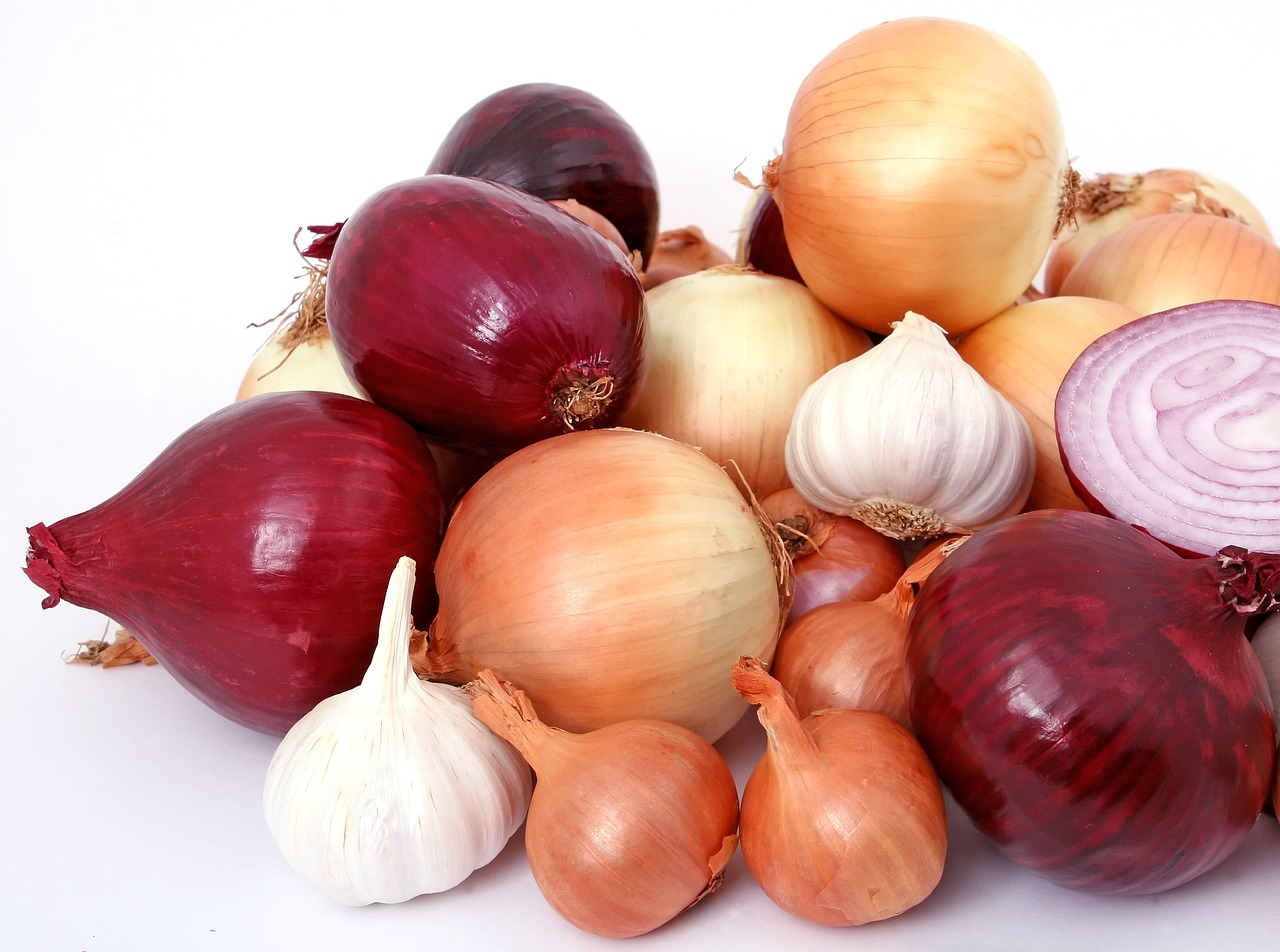
A Biscuit Policy on Sugar and Fat
Avoid sugary and fatty foods that can pack on unnecessary pounds and lead to dental problems and potential health complications.
Making Homemade Dog Food: Hearty and Wholesome Recipes
Crafting homemade meals for your pup doesn't have to be complicated. Here are some simple homemade dog food recipes that provide your dog with the goodness they need to stay healthy and happy.
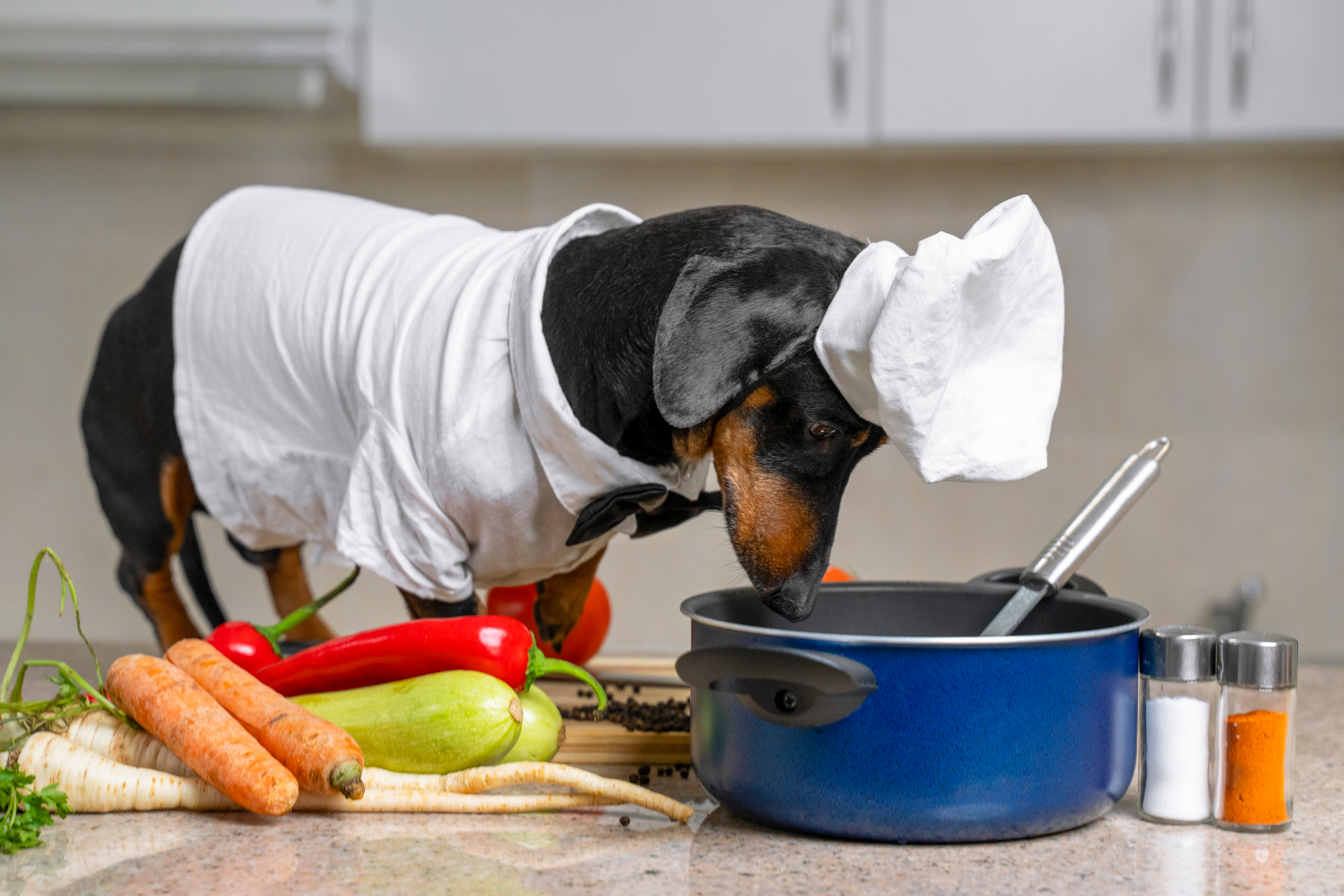
Turkey and Vegetable Delight
Ingredients:
- 1 lb ground turkey
- 1 cup carrots, chopped
- 1 cup spinach, chopped
- 1 cup brown rice
- 3 cups water
Instructions:
- In a large pot, add the ground turkey and cook over medium heat until browned.
- Stir in the carrots, spinach, and brown rice until the spinach wilted.
- Add the water and bring to a boil. Reduce heat, cover, and simmer for 20 minutes.
- Let the mixture cool before serving to your pup.
Salmon Surprise
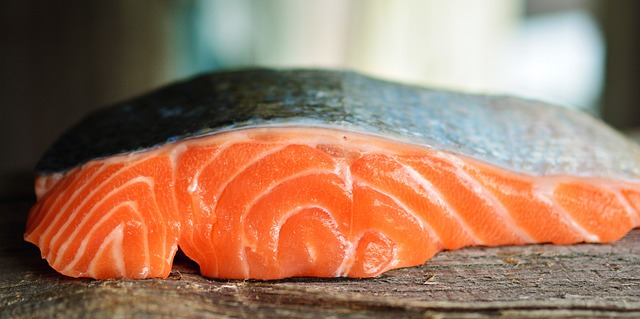
Ingredients:
- 1 can of salmon
- 1/2 cup sweet potatoes, cooked and mashed
- 1/4 cup green peas, steamed
- 1 tbsp fish oil
Instructions:
- Drain the salmon and mix all ingredients in a large bowl.
- Serve in portions. Refrigerate or freeze any leftovers for later.
Chicken and Veggie Medley
Ingredients:
- 2 lbs chicken (skinless, boneless)
- 1 cup broccoli, chopped
- 1 cup carrots, diced
- 1/4 cup blueberries
- 1 cup quinoa
- 2 cups water
- 1 tbsp flaxseed oil
Instructions:
- Place chicken in a pot and cover with water. Cook on medium heat until the chicken is cooked through.
- Remove the chicken, allow it to cool, and shred it into bite-sized pieces.
- In the same pot, add the shredded chicken, broccoli, carrots, blueberries, quinoa, and flaxseed oil.
- Add water if necessary, and simmer for 15-20 minutes until the quinoa is cooked and the vegetables are tender.
- Allow the food to cool before serving it to your pup. Store any leftovers in the refrigerator.
Special Treats for Your Pup's Palate
Treats are the spice of life, and the same goes for dogs. Homemade doggie treats can be a delightful way to show love and provide an occasional nutritional boost.
Peanut Butter and Banana Bites
Ingredients:
- 1 ripe banana, mashed
- 1/2 cup natural peanut butter
- 1 1/4 cup whole wheat flour
- 1/4 cup oats
- Water, as needed
Instructions:
- Preheat the oven to 350°F.
- Mix the banana and peanut butter until smooth. Add the flour and oats.
- Stir in enough water to create a dough.
- Roll out the dough and cut into shapes.
- Bake for 15 minutes or until golden brown. Cool before serving to your eager canine.
Sweet Potato Chews
Ingredients:
- 1 large sweet potato, washed and dried
Instructions:
- Preheat your oven to 250°F.
- Cut the sweet potato lengthwise, into 1/4 inch slices.
- Place the slices on a baking sheet and bake for about 3 hours, turning halfway.
- Allow to cool completely before serving to your dog. These can be stored in a cool, dry place for up to three weeks.
Pumpkin Peanut Butter Biscuits
Ingredients:
- 1 1/2 cups whole wheat flour
- 1/2 cup rolled oats
- 1/4 cup dry milk
- 1/4 cup cornmeal
- 1/2 cup peanut butter
- 1/2 cup water
- 1/2 cup pumpkin puree
- 1 beaten egg
Instructions:
- Preheat your oven to 350°F.
- Mix flour, oats, dry milk, and cornmeal in a large bowl.
- Add in peanut butter, water, pumpkin, and beaten egg. Mix well.
- Roll out dough to a thickness of about 1/2 inch. Cut into shapes with doggy biscuit cutters.
- Place on a greased baking sheet and bake for 30 minutes. Cool before serving to your elated dog.
Supplements and Extras: The Cherry on Top
Sometimes, for added health support, a few key supplements can make a world of difference in your dog's homemade feast.
Omega-3 Fatty Acids
Supporting heart, joint, and skin health, omega-3s from fish oils can be a great addition to your dog's diet.
Probiotics
For optimal digestion and gut health, probiotics are beneficial, especially for dogs with sensitive stomachs.
Multivitamins
Multivitamins are a valuable addition to a dog's diet to ensure they are receiving a full spectrum of necessary nutrients. They are particularly beneficial for dogs on homemade diets, older dogs, or those with certain health conditions.
Examples of Multivitamins
There are numerous multivitamins available for dogs on the market. Some popular examples include PetHonesty 10-for-1 Multivitamin with Glucosamine, which supports joint health, digestion, and promotes healthy skin and coat; Zesty Paws Multivitamin 5-in-1 Chews that promote healthy hips and joints, digestion, immune response, and cardiovascular function in healthy dogs; and VetriScience Laboratories Canine Plus Multivitamin, providing an extensive range of vitamins and minerals supporting overall health.
Benefits of Multivitamins
Multivitamins can serve various purposes, depending on the unique needs of your dog's food.
- Senior dogs may benefit from vitamins such as A, E, and C, which have antioxidant properties that help boost the immune system and slow down aging cells.
- Bone Health: Vitamins like D, calcium, and phosphorus can help with bone health, especially in younger dogs that are still growing and in older dogs to support their skeletal system.
- Skin and Coat Health: Vitamins such as Biotin, Vitamin E, and Omega-3s contribute to a shiny coat and healthy skin.
- Digestive Support: Probiotics and enzymes are often included in multivitamins to support digestive health.
- Energy Levels: B-vitamins are crucial for maintaining metabolic health, preventing fatigue, and keeping the body's nerves and blood cells healthy.
Before introducing multivitamins to your dog's diet, consult with a veterinarian to ensure the supplements will meet your pet's specific needs and won't interfere with any existing medications or conditions. As with any changes to their diet, start slowly and monitor your dog for any changes in behavior, appetite, or overall health.
Transitioning to Homemade Dog Food: Mindful Change for Maximum Benefit
While homemade dog food can be a nutritious and wholesome choice, it's essential to understand that it may not be suitable for every dog or owner. In the case of senior dogs, they may require a specialized diet that addresses their unique health needs, such as lower calorie intake, easily digestible proteins, or enhanced fiber content. For dogs with existing dietary or health concerns, switching to a homemade or raw food diet can sometimes exacerbate those conditions, especially if not appropriately balanced.
Moreover, it's worth noting that preparing homemade dog meals can be time-consuming and requires a thorough understanding of canine nutritional needs. This might be challenging for busy dog owners. Additionally, the cost of high-quality ingredients can add up, potentially making this an expensive option for some.
If you're considering a homemade diet for your pet, it's crucial to consult with a professional, such as a veterinarian or a pet nutritionist. They can provide guidance based on the specific needs of your furry friend, helping to ensure their diet is balanced, nutritionally complete, and suitable for their age, breed, and health status.
Gradual Transition Process
Slowly introduce homemade meals alongside your dog's regular food, gradually increasing the amount of homemade food while reducing the store-bought food.
Monitor and Adjust
Keep a close eye on your dog's health and energy levels. If they appear unwell or their digestion is out of sorts, dial back the homemade meals and consult with your vet or veterinary nutritionist.
In Summary: A Healthier Hound Kitchen
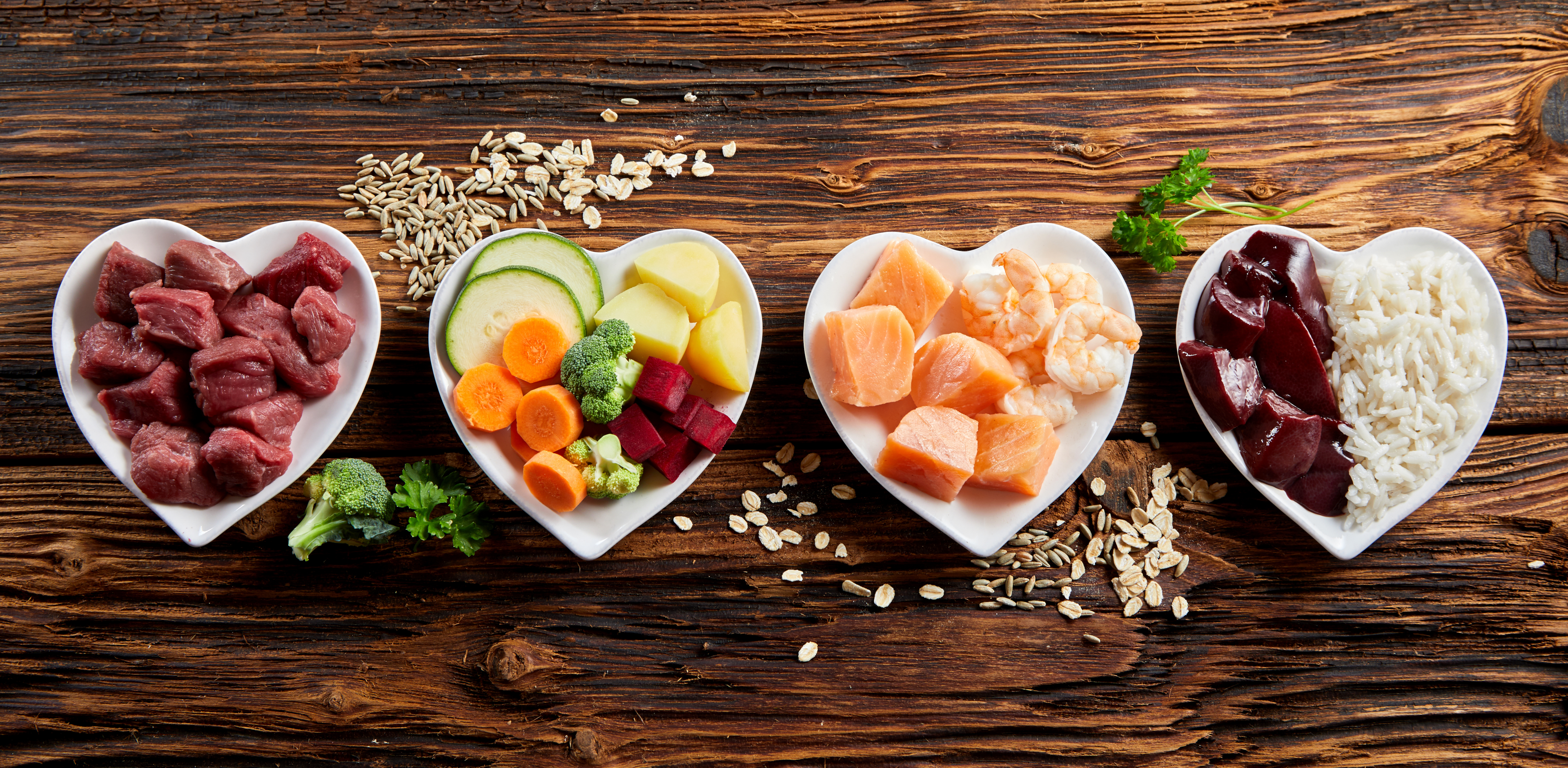
Feeding your dog meals made with love and fresh ingredients can be not just a way to show you care, but a path to a healthier, happier pup. By making informed decisions about what goes into their meals, you can provide a diet that addresses their individual needs and leads to a longer, more joyful life by your side. As with any significant change in your dog's diet, be sure to consult with a professional before embarking on your homemade journey. Your furry friend's gratitude – and the health benefits – will be more than worth it. Here's to making homemade dog food for many years of tail-wagging and good health in the kitchen and beyond!







